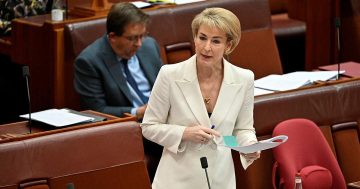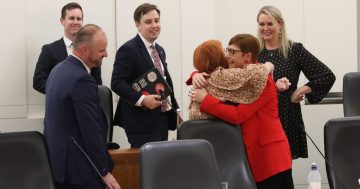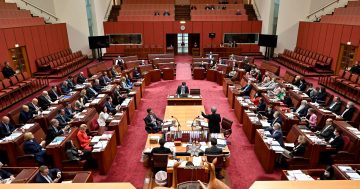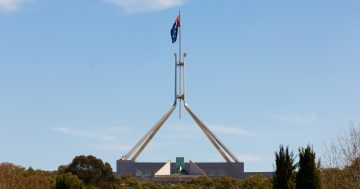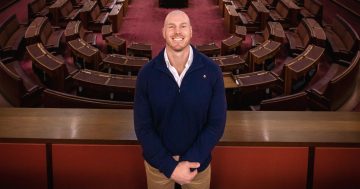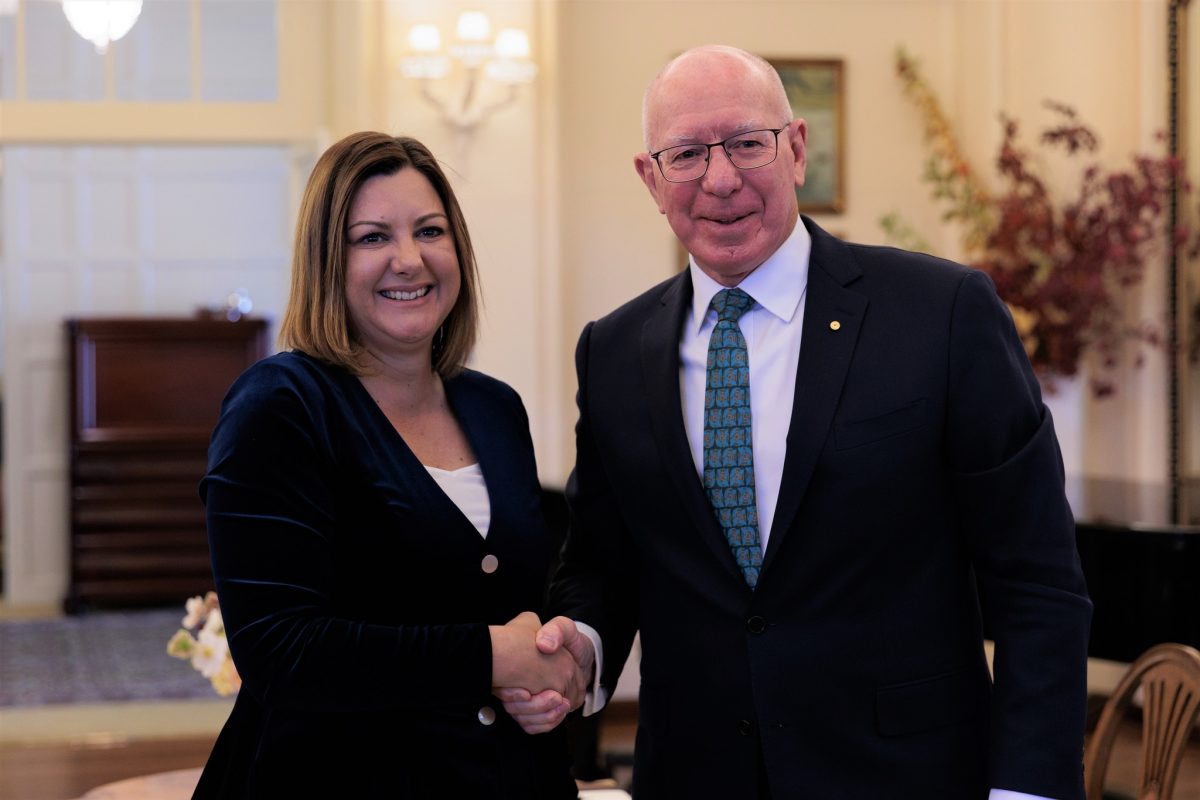
Minister for Territories Kristy McBain has confirmed a Territory Rights bill would be introduced by way of a private member’s or senator’s bill. Photo: Kristy McBain Facebook.
The Federal Labor government will leave it up to a member or senator to introduce a Territory Rights bill in the first few weeks of the new parliament.
It’s expected the bill could be introduced in late July or early August.
Such a bill would give the ACT and the Northern Territory the power to legislate on voluntary assisted dying and reverse the so-called Andrews Bill which was enacted in the late-90s to stop the territories from legalising euthanasia.
All Australian states have now passed voluntary assisted dying laws, with NSW the most recent to do so in May.
While Minister for Territories Kristy McBain will not introduce the bill herself, Region understands she is willing to work with the member or senator who does.
ACT Senator Katy Gallagher supports territories legislating on voluntary assisted dying and Member for Fenner Andrew Leigh has indicated he would like to introduce a private member’s bill.
Minister for Health Mark Butler today became the latest Federal Labor MP to indicate he would support lifting the ban.
Member for Canberra Alicia Payne has called for the party to take a binding vote on the issue, not a conscience vote.
Despite the fact the bill is about Territory Rights, Labor will grant its members a conscience vote due to the nature of deeply held views on euthanasia.
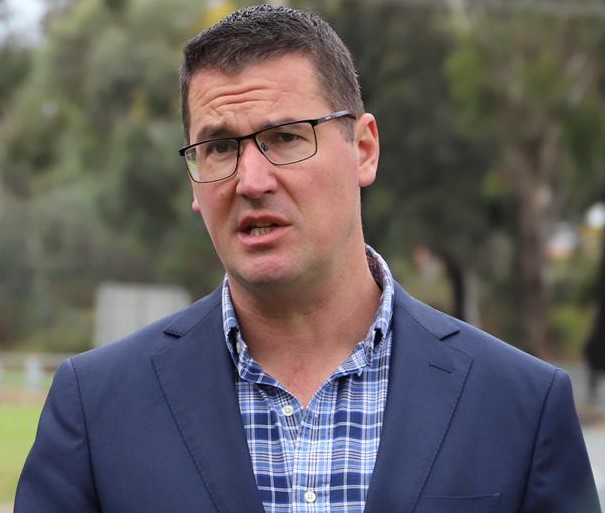
Former Liberal Senator for the ACT Zed Seselja repeatedly refused to support overturning the so-called Andrews ban. Photo: Cassandra Choake.
Former Liberal Senator for the ACT Zed Seselja had repeatedly refused to lend his support to overturning the ban on voluntary assisted dying. Following his defeat at the election, Liberal Party sources suggested his conservative position contributed to his loss.
The previous Federal Government had also knocked back efforts to repeal the ban.
It’s expected a bill would be introduced to Federal Parliament by August, although it’s not yet clear who would introduce the legislation.
During his campaign, now Senator David Pocock promised to move a private senator’s bill to restore the ACT’s right to legislate on voluntary assisted dying in his first weeks in the Senate.
He said his bill would not invite the Federal parliament to debate the issue of voluntary assisted dying but to consider whether the territories should have the autonomy to decide for themselves.
A spokesperson for Mr Pocock confirmed he would be willing to work constructively on the bill with other members alongside Ms McBain and had already had conversations on the matter.
Details about who would introduce the bill are still being worked out.
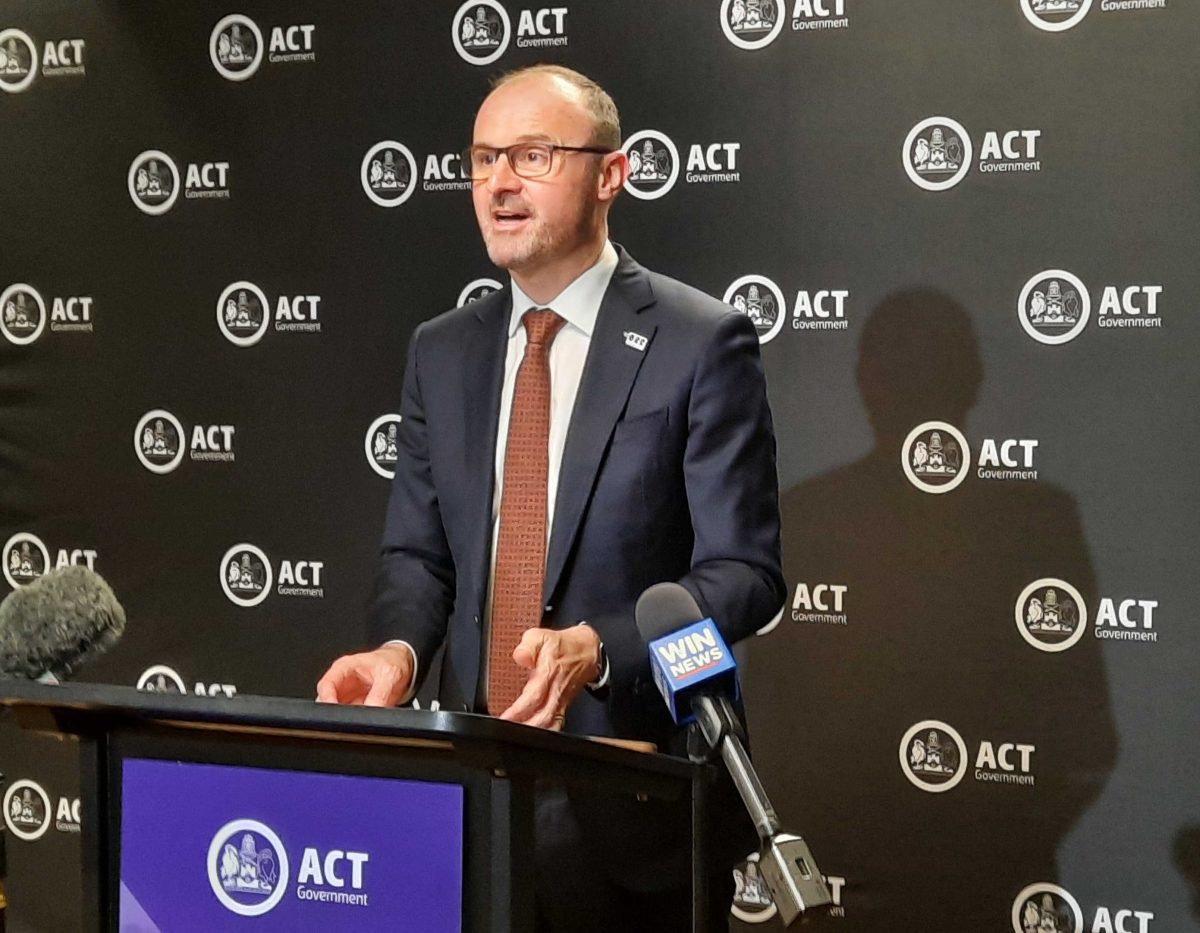
Chief Minister Andrew Barr has previously confirmed work was underway to commission draft voluntary assisted dying legislation ahead of what he expected would be a repeal of the ban. Photo: Ian Bushnell.
Locally, the ACT Government has already confirmed work was underway to commission draft voluntary assisted dying legislation ahead of an expected repeal of the existing ban.
Mr Barr told the ACT Legislative Assembly at the start of June that a consultation document alongside a draft bill would be prepared.
He described the former Government’s treatment of Canberra as akin to “disdain”.
“Canberrans are sick of being treated like second-class citizens … we know Canberrans care deeply about this issue, and they have every right to feel frustrated and disappointed,” he said.
Opposition Leader Elizabeth Lee has previously confirmed she believed the ACT Legislative Assembly should be able to debate and legislate on the issue.












